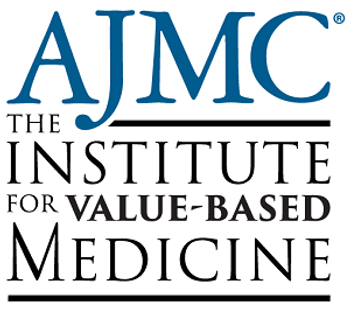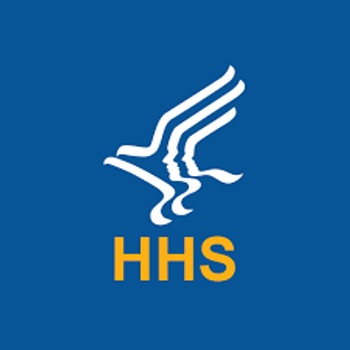
Allison Inserro
Allison is Associate Editorial Director for The American Journal of Managed Care® (AJMC®) and The Center for Biosimilars®. She joined AJMC® in 2017. She produces and oversees written, video, and podcast content across several disease states and issues surrounding value-based care and health policy.
She has an MPA from New York University. You can connect with Allison on LinkedIn.
Articles by Allison Inserro


Future myasthenia gravis therapies have different mechanisms of action than current treatments, said James F. Howard Jr, MD, professor of neurology at the University of North Carolina at Chapel Hill.

James F. Howard Jr, MD, professor of neurology at the University of North Carolina at Chapel Hill, explains how nerve and muscle signaling in the neuromuscular junction go awry in myasthenia gravis.

The plan aims to reverse a significant surge in sexually transmitted infections, including gonorrhea, syphilis, and chlamydia.

Unmet needs include both improved myasthenia gravis treatments as well as a way to monitor progression of the disease, said James F. Howard, Jr, MD, professor of neurology at the University of North Carolina at Chapel Hill.

Lexicon Pharmaceuticals received approval for sotagliflozin to treat a broad range of left ventricular ejection fraction, for patients with and without diabetes.

Christopher P. Cannon, MD, a professor of medicine at Harvard Medical School and senior physician in the Cardiovascular Division at Brigham and Women’s Hospital, spoke about the benefit seen in a study of sotagliflozin for patients with acute heart failure.

Current myasthenia gravis therapies can exacerbate comorbidities or create other complications, said James F. Howard Jr, MD, professor of neurology at the University of North Carolina at Chapel Hill.

Myasthenia gravis expert James F. Howard, Jr, MD, professor of neurology at the University of North Carolina at Chapel Hill, explains the burdens that step therapy places on patients with rare diseases and their providers.

If approved by the FDA, sotatercept would be the first therapy that acts directly against the cause of the disease.

The best leaders are those who foster open communication, says Lee A. Norman, MD, MHS, MBA, who appeared at The American Journal of Managed Care®’s Institute for Value-Based Medicine® event on population health in Kansas City, Missouri.

The results indicate that the program could play a role in discouraging use of biosimilars in the United States.

Keeping up-to-date on information, whether it is about clinical matters or information systems, is critical to a deliberate learning mindset that is beneficial to health care providers, says Lee A. Norman, MD, MHS, MBA, the senior medical director for Optum Care Kansas City.

Challenges around data are mostly around data itself, particularly if it is not timely, says Lee A. Norman, MD, MHS, MBA, the senior medical director for Optum Care Kansas City.

The deal creates a new force in the world of value-based health care.

Using evidence and being open-minded are 2 strategies for providers shifting to new models of delivering care, says Lee A. Norman, MD, MHS, MBA, senior medical director for Optum Care Kansas City.

Lee A. Norman, MD, MHS, MBA, who spoke at The American Journal of Managed Care®’s Institute for Value-Based Medicine® event on population health March 9, 2023, in Kansas City, Missouri, discusses the shift to value-based care.

James F. Howard, Jr, MD, professor of neurology at the University of North Carolina at Chapel Hill, explains the antibody subtypes associated with this rare neuromuscular disease.

Although adults hospitalized with COVID-19, the flu, or respiratory syncytial virus are often administered antibiotics, the drugs have no effect on reducing the risk of death, according to a new study.

Digital health data can facilitate the participation of underrepresented and diverse patient populations in clinical trials, but first the FDA must build its capability to evaluate such information in its regulatory processes for new drug development.

Both the high-concentration and low-concentration versions of adalimumab-adaz (Hyrimoz) injection will launch in July, along with a wave of other biosimilars to Humira (reference adalimumab).

Dupilumab is the first biologic to significantly improve lung function in chronic obstructive pulmonary disease (COPD), according to topline results released Thursday.

Specific dosing regimens of treatments prescribed by blood specialists have not been widely studied, despite the advent of newer hemophilia therapies, the researchers said.

Candida auris was first reported in the United States in 2016; the highly contagious fungal infection has been labeled an “urgent threat” by the CDC, and its spread may have aided by underresourced public health systems.

Treatable skin diseases in the transgender population can be overlooked and not managed, despite how they can negatively impact quality of life, according to researchers.

The Biden administration released the list of 27 Medicare Part B drugs that are subject to rebates back to the government for having price increases that rose faster than inflation as well as the removal of out-of-pocket costs for some vaccines covered under Part D.

Lee A. Norman, MD, MHS, MBA, spoke at The American Journal of Managed Care® (AJMC®)’s Institute for Value-Based Medicine®'s March 2023 event on population health about leading physician practices and navigating through change; here, he talks about how the COVID-19 pandemic shifted how he thinks about resiliency during times of intense stress and work.

The authors said it is the first study of epidemiology and real-world treatment in Germany.

Seeking to speed up the execution of evidence-based care practices, the Patient-Centered Outcomes Research Institute (PCORI) announced the 42 health systems across the country who will join a 5-year program to build capacity and implementation to improve health care outcomes.

Efanesoctocog alfa is the first factor VIII therapy to overcome the interaction with endogenous von Willebrand factor, which creates a ceiling of 8 to 19 hours on the half-life of current factor VIII replacement products, which in turn creates the need for more frequent dosing.
Latest Updated Articles
 Swedish Study Examines Impact of Comorbidities on Cost of MS Over Time
Swedish Study Examines Impact of Comorbidities on Cost of MS Over TimePublished: November 13th 2020 | Updated:
 FDA Approves Sandoz’ High-Concentration Version of Adalimumab Biosimilar, Hyrimoz
FDA Approves Sandoz’ High-Concentration Version of Adalimumab Biosimilar, HyrimozPublished: March 24th 2023 | Updated:
 Even With Mild Disease, Children With Atopic Dermatitis Have Comorbidities
Even With Mild Disease, Children With Atopic Dermatitis Have ComorbiditiesPublished: March 5th 2021 | Updated:
 Researchers Advocate for Closer Monitoring of Patients With EoE
Researchers Advocate for Closer Monitoring of Patients With EoEPublished: August 12th 2022 | Updated:
 Sotorasib Shows Benefit for Patients With Certain Type of NSCLC
Sotorasib Shows Benefit for Patients With Certain Type of NSCLCPublished: September 21st 2020 | Updated:
 Propelled by Targeted Therapies, NSCLC Mortality Fell Between 2013 to 2016
Propelled by Targeted Therapies, NSCLC Mortality Fell Between 2013 to 2016Published: October 17th 2020 | Updated:



